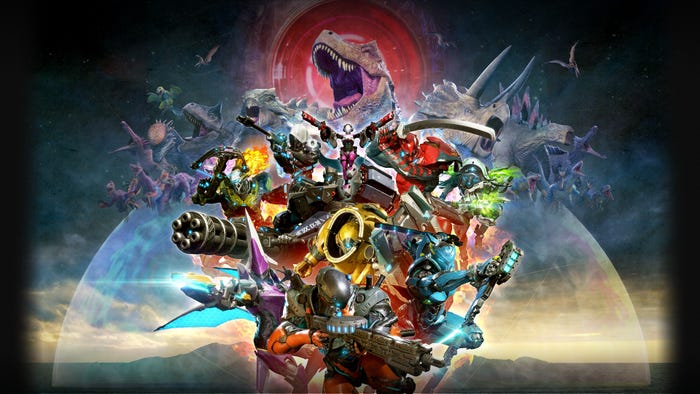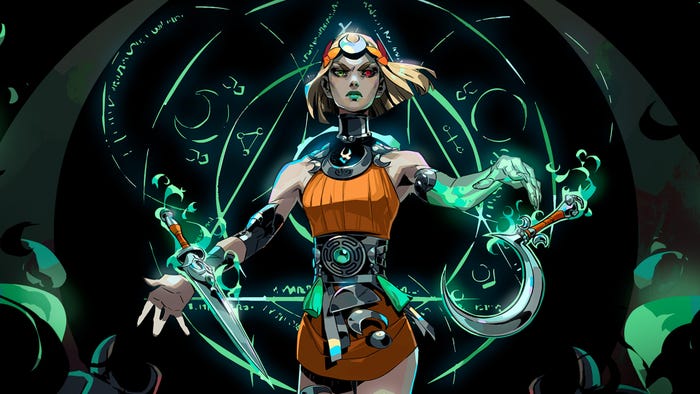Indie Promotion Wednesdays
Lots of developers have problems getting their games noticed. This blog tries to offer a solution to a lot of those problems by telling the world about someone else besides yourself. It doesn't absolutely solve the problem, but will make you feel good!

So I do the marketing and PR for a small development team in the Netherlands called Speelbaars and I'm just starting out. About a year ago I never would've thought of doing the stuff I do today. I'm a designer by heart and that is what I wanted to do with my life. But when we started out, we agreed that marketing was an important aspect of developing a successful game and after some discussion it was decided that because I had the most experience with marketing and public relations, I would run the marketing department (existing out of exactly one person, me).
It is certainly a fun job. You get to meet all kinds of interesting people, talk about your game a lot and get invited to all of these interesting events and shows. Basically, I never expected to have this much fun with something else as designing games.
But one aspect of marketing is something I've struggled with a lot this past six months. A lot of it seems based on luck. Knowing the right people, having enough money or simply have the luck of getting noticed in this giant flux of promising ambitious indie games. We're privileged because we're from the Netherlands. A small country with a relatively high number of really successful indie developers(Vlambeer, Ronimo, Abbey games) and even our own triple A development studio(Guerilla). A lot of people we can reach relatively easy and ask for help and support. A lot of upcoming developers get their share of success by tips or shout-outs from one of these developers and I'm totally OK with that.
A lot of people however don't have this luxury and struggle to find people who can help them with marketing. Many of them simply lack the knowledge to make their game stand out, or don't know where to find people who can help them. A lot of them are just as skilled or sometimes even better then people who've established themselves as successful self sustaining developers. And I know there is a lot (and I mean A LOT!) of blogs, video's and talks that can be found about this topic. I've read/saw about 80% of them, mainly because I'm an unsatisfiable knowledge hungry bookworm. But most of these are written from one point of view. The successful indie developer. They talk about what made their game a success and why they think it did, but hardly ever think about the amount of luck that is involved in their process. I speak from experience when I say that simply writing a press release/e-mail (in every 50 supposedly correct ways of doing so) doesn't guarantee you exposure for your game. We got our game greenlit and we've got some decent exposure a long the spectrum, but not one mainstream website (almost the holy grail for indie devs) ever picked up on it. That however isn't the main point of this blog. Seeing how we and other developers struggle everyday to get exposure for their games got me thinking of why it is so difficult to get quality games noticed.
The first point is the lack of understanding of what press does. The basic knowledge is that they're busy, but no one seems to know how busy. This lead to the idea that if you send them an e-mail they will take some time to react, but they will eventually. As most developers (or just people in general) tend to relate to their own experiences and a busy day means taking a lot of time to react to everything. If I say most mainstream websites receive (roughly based on asking actual journalists) around 1000~2000 e-mails a day from developers telling them about their game, would you be surprised? That is way worse then your busiest day isn't it? So you can't blame them on missing out on your mail. They want to read about your game, as most of them are gamers by heart, but they simply can't. They have a short amount of time to pick, what they think is the most interesting for their audience. It isn't that your game isn't good enough, it's just that the other guy's e-mail was just a bit prettier, better worded, more recognizable, or it's just plain old good luck that they picked it out. This is just to give you a small insight on the other side. There is way more to this story, factoring in clicks, views, controversy and connections, but that would make this blog an extremely long drag to read. But it is however part of what I really want to propose.
The problem is getting noticed in a giant sea of good games and shovelware junk of which the receiving end can't judge based on just e-mails alone. So a lot of potentially great games go unnoticed, resulting in broken dreams, shattered careers, lots of lost money and all kind of drama on the Internets about the unfairness of games press and successful indie developers.
So I would like to propose the selfless idea of 'Indie promotion Wednesdays'.
Now what does that mean, you think?
The idea is that because every developer promotes their own game as the best there is on the market, a journalist ends up with an in-box full of people telling him/her that he/she should cover their game. It doesn't actually give him an impression if the mail he just opened is actually a good game, or just a well-written header.
IPW(you didn't think I was gonna spell Indie promotion Wednesday every time did you?) tries to solve this problem, at least momentarily on Wednesdays, by letting developers decide which games really deserve the limited spots of exposure.
The rules are simple.
1 - Every Wednesday you(or your team) pick a game that you know is just released, is still in development or just didn't get the attention that you think it deserves, that isn't made by you.
2 - Contact at least three (or more, if you feel like it or have the time) journalists, bloggers, YouTubers/Streamers or any other media outlet, with the message that they should cover that game because [insert reason why you like that game]. Either through e-mail or social media (Twitter, Facebook, etc).
3 - Do a shout-out about the developer and it's game on your social media. If on Twitter, with the hashtag #IndieProWed so that media can always find submissions easily.
4 - Feel good for helping out a fellow developer.
That way, you create an environment that is based on what people think is good, regardless of what other motives they have for getting their game noticed. Especially if a game gets multiple shout-outs, as a journalist getting three e-mails from someones else then the developer about a game, starts to get curious about why people want him to cover it (at least that is the theory). It doesn't solve the problem and doesn't guarantee your game any exposure. But it does help out a lot of people with the same day-to-day problems as you and who knows people might be doing the same for your game! I hope it can be a start to an industry in which people help each other out more and doesn't leave a lot of people fending for themselves when they start in this highly competitive field.
My name is Steven, you can reach me on Twitter (@Ithunn) or mail me at steven[at]speelbaars[dot]com. I'm the lead designer and marketing/PR manager at Speelbaars, currently working on our first game called Lumini. I'm also terribly sorry for the long read!
Read more about:
BlogsAbout the Author(s)
You May Also Like













